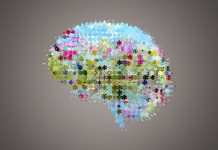Ageing and age-related morbidity are unavoidable, but research to understand and alleviate age-related health issues is the need of the hour to ascertain healthy-ageing. Dr. Nirmal Robinson, Principal Investigator at the CECAD Research Centre discusses
“Youth is the gift of nature, but age is a work of art”. Stanislaw Jerzy Lec
Ageing is the process of growing older. Every living being undergoes this process which is genetically determined but modulated by various environmental factors. Demographic ageing is characterised by increased mortality rate and decreased reproductive rate. The aged population in the world is rapidly increasing. WHO estimates that between 2015 and 2050, the world’s population over 60 years will nearly double from 12% to 22%. Already, by 2020, the number of people aged 60 years and older will outnumber children younger than 5 years. Currently this demographic shift is being sensed in developed nations and focused measures to improve health and social systems are discussed. However, older people are increasing in low- and middle-income countries at an alarming rate. Therefore it becomes a global challenge to ensure that health systems are in place to accommodate this demographic shift. Ageing and age-related morbidity is unavoidable at the moment, but research to understand and alleviate age-related health issues is the need of the hour to ascertain healthy-ageing.
Metabolism and Immunity are fundamental for survival
Metabolic and immune systems are fundamental for any organism, as the ability to tolerate under energy limiting situations and to fight against pathogens are vital for their survival. Infections pose the strongest selective pressure on immune systems and mankind, particularly after the massive decline in population during periods of infectious disease epidemics and pandemics. Hence, deterioration of immune and metabolic functions are hallmarks of most of the age-associated pathologies. Interestingly, metabolic regulation and immune responses are integrated. This is evident from many infectious diseases; e.g. infectious diseases caused by pathogens such as, Mycobacterium tuberculosis and HIV can lead to disruption in metabolism and result in wasting of metabolically active lean tissues. This phenomenon is also apparent in patients with cancer, obstructive pulmonary disease and congestive heart failure. Tissue wasting is mediated by inflammatory cytokines such as tumor necrosis factor alpha (TNF-α), interleukin-6 (IL-6) and interferon gamma (IFN-γ), which are components of the immune system. On the other hand, several metabolic disorders such as diabetes and obesity possess a chronic inflammatory condition, which is thought to propel the pathology associated with these diseases.
Intimate relationship between metabolism and immunity
When nutrient availability is diminished, an organism opts to operate in an energy efficient mode. For instance, cells undergo autophagy, a process by which some of the damaged cellular components such as damaged mitochondria are taken into a vesicle, degraded and recycled to derive energy. This process is analogous to products made out of recycled materials, and it also cleans up the intracellular milieu. During this time pathogens that present within the cells are also taken for degradation and the immune system is alerted (e.g. autophagy is employed by immune cells in clearing intracellular pathogens such as Mycobacterium tuberculosis and Salmonella Typhimurium). In laboratory animals, autophagy, which is triggered upon caloric restriction have also been shown to increase lifespan. A cell can also utilise alternate resources such as lipids instead of glucose to derive energy when glucose availability is reduced, thereby depletes stored fat. However, when surplus nutrients are available, the metabolic state which was beneficial could lead to the storage of excess fat and its associated diseases. A combination of these traits to use energy efficiently during strife and to use metabolic functions to mount immune responses have given rise to a biological organisation that is not only capable of processing and storing energy but also utilising the metabolic pathways to generate immune responses.
Understanding the molecular mechanisms which tether the energy generating metabolic and immune systems is very important to resolve age-associated diseases and improve health span. “Hackers don’t take realities of the world for granted; they seek to break and rebuild what they don’t like. They seek to outsmart the world”, said Sarah Lacy.
Similarly, pathogens which hack our immune system break in and rebuild it to their advantage. Therefore, in our laboratory, we have chosen to follow the pathogens to understand the intricate molecular interface between metabolism and immunity.
Dr. Nirmal Robinson
Principal Investigator
CECAD Research Centre, University of Cologne
+49-221-478 84083
nirmal.robinson@uk-koeln.de
http://cecad.uni-koeln.de/Dr-Nirmal-Robinson.270.0.html
Please note: this is a commercial profile











